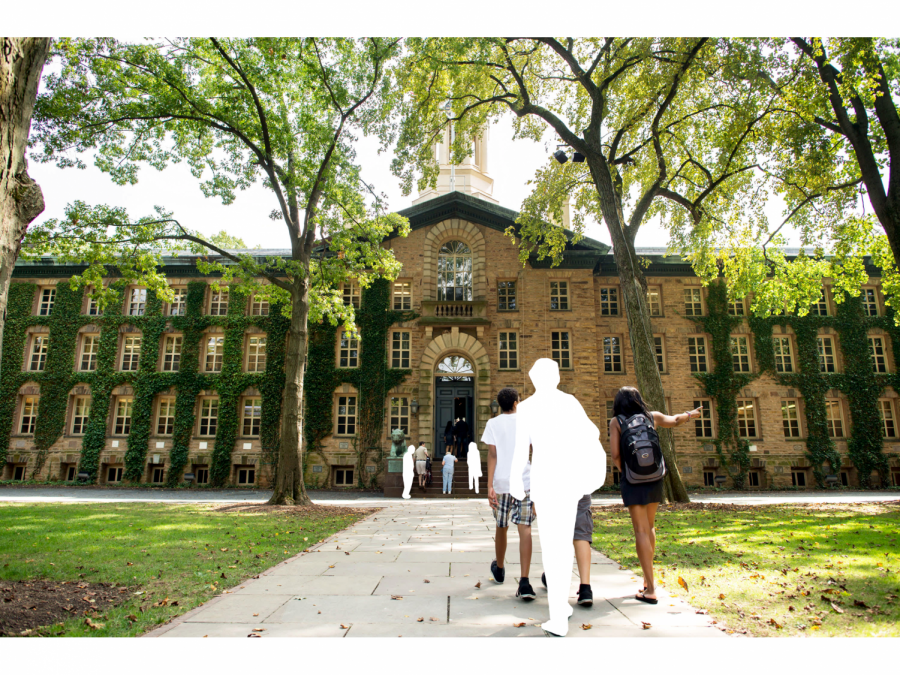The studentry has been robbed. Witnesses are parents, teachers, classmates. But what stole our motivation?
The Thief: Emotional Neglect
Every student’s motivations and goals are different. But the need we all share is to do something well and be recognized for it. What happens around middle school and high school is that kids (including myself), after being supported for doing recreational activities, are suddenly stigmatized for their interests because it’s getting in the way of their schoolwork.
If a child grows up liking sports or an academic area in school, and is able to produce good results for it, they receive the praise that encourages them to strive more in those areas. But if someone isn’t able to immediately find something they can like inside the school’s academic domain, they’re criticized for not making an effort in those fields.
The waning possibility of competency in any area of school makes them stop trying altogether. Instead they’ll get the feeling of accomplishment and recognition they need from other activities, which often come in the form of video games, or social media.
In 2003, a study by the National Research Council revealed more than 40% of kids feel chronically disengaged from school. If so many kids can relate to the experience above, it raises a question: why haven’t we seen any improvements in school facilities?
A Guilty Witness: Legal Action for Educational Improvement
The No Child Left Behind Act, (NCLB) implemented in 2002, was the main educational law in America up until 2015. In short, numbers show generally higher test scores since 2002 and higher qualifications for teachers to supply classes with better instructors.
But the NCLB propelled many of the problems it set out to resolve. Schools, especially those in rural districts, experienced severe teacher shortages from the NCLB’s high teacher qualification standards. Federal underfunding on the state-level forced schools to drop foreign language and arts courses. The act failed to address factors like homelessness, lack of health care, and poor classroom conditions that kept kids from their full capacity for achievement.
In 2015 the NCLB was replaced with the Every Students Succeeds Act, (ESSA) which sustained the NCLB’s efforts for equal opportunities in education and established a better accountability system for schools and teachers. Yet still, essential schools were closed, the economic struggles students’ families faced were not addressed, and standardized testing remained the trademark of student capability.
Neither of these acts give schools, the place where the education happens, authority over the laws that mandate them. Neither of them mention getting the emotional support kids need to motivate themselves.
Solving the Case: Where Do We Find Motivation?
You can’t and won’t be able to enroll students into more educational programs or take our phones away to make us suddenly motivated again. You have to listen to us when we’re trying to tell you we’re struggling. You can’t just tell us to just ‘stop being lazy.’
People use the word laziness when they are not taught the scope of human emotion. We might be angry, self-critical, or in worse cases anxious and depressed, but whatever we are feeling cannot be marginalized to the single word lazy.
The Center for Disease Control and Prevention (CDC) reports anxiety disorders in kids increase by 58% when they become teens. For depression, it increases by 248%.
This does not mean that we should expunge school entirely and live on the streets with no possessions like it’s the 400s BCE. (If you are interested in this lifestyle please refer to Diogenes in the citations). Learning about people like Diogenes, about history, the arts, english, and math is a privilege when you can see its worth.
Supplemental education programs are amazing opportunities to make sure kids have no impediments to their full potential in learning.
But from my personal experience, and from the experiences I’ve seen, it’s hard to see the worth of our education.
Students are natural learners. It is a greater feat to squash that curiosity than to initiate it.
Punahou has taken great strides to individualize learning and shift away from standardized testing with competency-based learning. It is now our community’s responsibility to meet that radicalization with our own movement for emotional support.
I am not an expert on teen psychology. I do not know how to make an educational environment that students can thrive in. I can’t tell you how to treat your parents, kids, or friends. I’m just a student who has watched my classmates be miserable because they still don’t have the support they need. And I can only ask that you listen to us and be there when we feel like we’re failing.
To parents and teachers: listen to your kids. Empathize with us and try to understand what we feel. Students need time to become motivated, so encourage us to keep going when we have hit a roadblock.
For many teens, our image of ourselves is built around a depiction of our failures or the difficulties we’re facing, in and out of school. Reshape that image to focus on our strengths and the positive effect we have on our communities.
Finding student motivation is not a matter of stigmatization, or rewards and punishments. It is about encouraging us to find our passion for learning after it has been smothered by emotional neglect and, at times, inadequate educational accommodation.
Further Watching, Listening, and Reading:
The Ted Talks that inspired this article:
How to escape education’s death valley
CDC Children’s Mental Health:
https://www.cdc.gov/childrensmentalhealth/data.html
Want to learn more about Diogenes or American education institutions?
Diogenes:
The Most Savage Philosopher of All Time (video)
American education:
The Factory Model of Education
18 Reasons the U.S. Education System is Failing
The No Child Left Behind Act https://connectusfund.org/14-crucial-pros-and-cons-of-the-no-child-left-behind-act
Psychology of child motivation:

